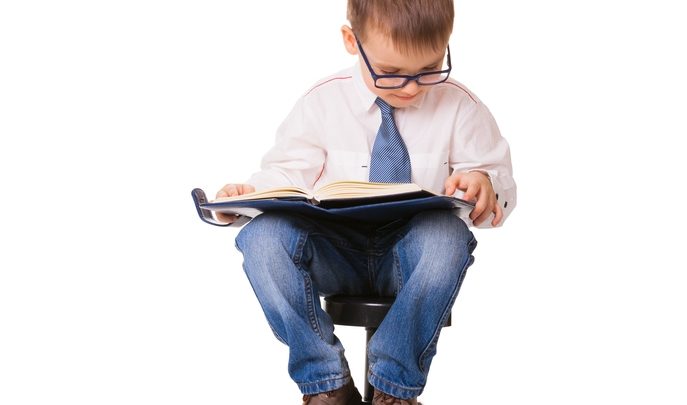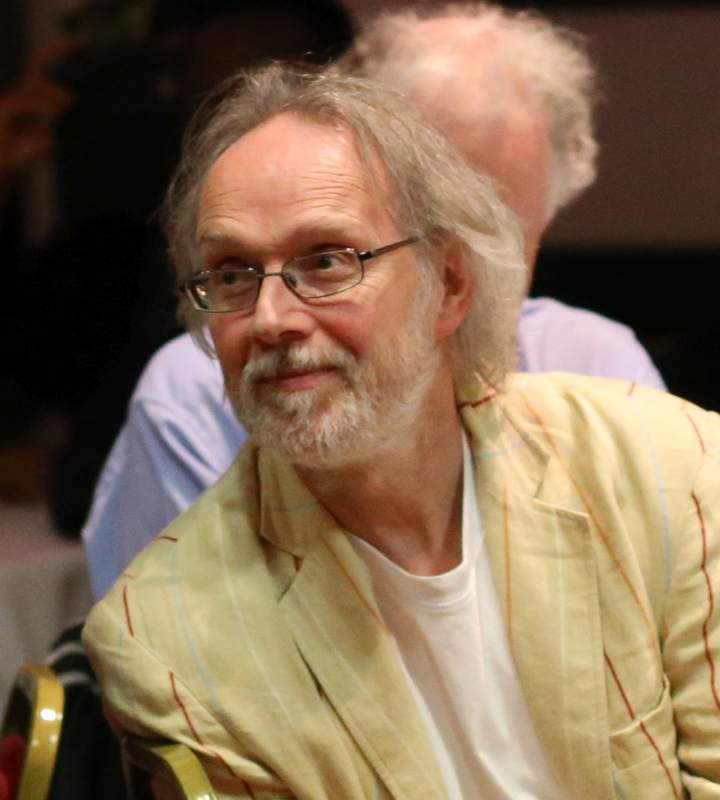‘A Heart-Denuded Mentality’ – The Downside Of Making Early Childhood Education More Professionalised

Left unchecked, the professionalisation of early care and education may end up doing more harm than good, says Richard House…

- by Richard House
- Early years campaigner, chartered psychologist & educational consultant

In the 1990s I started grappling with the professionalisation of counselling/psychotherapy, focusing on the negative impact on therapy practice of a so-called ‘professionalising’ mentality.
These include over-formal, overly cognitive education negatively impacting upon free play, the natural reassuring rhythms of an unhurried family life, an early existence free of anxiety-provoking goals and more besides. My Open EYE campaigning colleagues and I were greatly concerned that the statutory nature of the EYFS would generate a quasi-formal learning ethos cascading ever-earlier into early childhood – and this has indeed happened.
A heart-denuded mentality
The ‘professionalisation’ of early childhood education has been an almost inevitable accompaniment of this cultural transformation of children’s early experience. Uncritically applied, such professionalisation so easily becomes coupled with the ‘audit-culture’ practices of measurement, formal goal-setting, and so forth that have no place in early childhood.
But in the understandable and justified desire for early years workers attaining higher employment status, the danger is that a heart-denuded ‘professionalising mentality’ can compromise the values of love and care that should arguably be at the heart of early experience. ‘Post-graduatisation’ is one central form that professionalisation has taken; yet whether academic training per se is most appropriate for working effectively with preschool-age children can be questioned. The subtle, often intuitive qualities – and the intensely practical and artistic qualities – needed for working effectively with young children can easily get lost or inappropriately downgraded within an overly professionalised, academic approach.
An obvious alternative is high-quality vocational training, such as in Steiner Kindergarten and Pikler trainings, which have experiential learning, artistic and musical ability and personal development, rather than academic ability at their heart. It’s disappointing that there exists very little explicitly critical literature on professionalisation in our field (Jayne Osgood’s work being a notable exception), with it tending to be viewed as an unambiguous good – an assumption that I am gently questioning here.
We all want our children to have the best possible, developmentally appropriate early experience, and some concern with ‘standards’ can make a contribution to that end. But we thankfully haven’t (yet)? reached the point where grandparents have to pass training courses in early education before they’re allowed to care for their grandchildren.
I maintain that if we can give our children a quality, ‘home-from-home’ experience in our settings, where they’re learning deeply and unconsciously about what it means to be human in a human world, rather than being preoccupied with ‘delivering’ and ‘measuring’ early education outcomes, we’ll be doing them an inestimable service.
Richard House is a trained Steiner Kindergarten teacher and co-founder of Early Childhood Action
G.B. Shaw’s famous quip that “All professions are conspiracies against the laity” tells some of the story, but it’s more complex than that. Ivan Illich’s work on this question (most notably his classic 1977 book Disabling Professions) is also seminal, and I went on to write/edit several books on the question myself.
Sign of the times
A press report last year headlined ‘Grandparents provide £500 million free childcare to parents every year’ referred to research showing that on average, grandparents look after their grandchildren for seven days a month (valued at nearly £3,500 worth of childcare).
As we’ll see, such grandparental care is very relevant to the question of professionalisation in early care and education. It’s surely a sign of our narrowly materialistic times that such research feels the need to monetise the grandparenting relationship, as if it’s some kind of chore that requires a monetary value – rather than seeing it as just what happens in extended families, with grandparents loving their children’s children, and wanting to spend time with them.
In the current narcissistic age, we should perhaps be grateful that only 21% of the sample said that caring for grandchildren “Is affecting their own lifestyle” – as if one’s grandchildren should be viewed as something quite distinct from a ‘Grandparents’ lifestyle’! I’m delighted that grandparents are playing a greater role in their grandchildren’s lives. Recently there’s been a dramatic trend towards professionalised ‘early education’ colonising early childhood experience, but great dangers accompany this trend.
These include over-formal, overly cognitive education negatively impacting upon free play, the natural reassuring rhythms of an unhurried family life, an early existence free of anxiety-provoking goals and more besides. My Open EYE campaigning colleagues and I were greatly concerned that the statutory nature of the EYFS would generate a quasi-formal learning ethos cascading ever-earlier into early childhood – and this has indeed happened.
A heart-denuded mentality
The ‘professionalisation’ of early childhood education has been an almost inevitable accompaniment of this cultural transformation of children’s early experience. Uncritically applied, such professionalisation so easily becomes coupled with the ‘audit-culture’ practices of measurement, formal goal-setting, and so forth that have no place in early childhood.
But in the understandable and justified desire for early years workers attaining higher employment status, the danger is that a heart-denuded ‘professionalising mentality’ can compromise the values of love and care that should arguably be at the heart of early experience. ‘Post-graduatisation’ is one central form that professionalisation has taken; yet whether academic training per se is most appropriate for working effectively with preschool-age children can be questioned. The subtle, often intuitive qualities – and the intensely practical and artistic qualities – needed for working effectively with young children can easily get lost or inappropriately downgraded within an overly professionalised, academic approach.
An obvious alternative is high-quality vocational training, such as in Steiner Kindergarten and Pikler trainings, which have experiential learning, artistic and musical ability and personal development, rather than academic ability at their heart. It’s disappointing that there exists very little explicitly critical literature on professionalisation in our field (Jayne Osgood’s work being a notable exception), with it tending to be viewed as an unambiguous good – an assumption that I am gently questioning here.
We all want our children to have the best possible, developmentally appropriate early experience, and some concern with ‘standards’ can make a contribution to that end. But we thankfully haven’t (yet)? reached the point where grandparents have to pass training courses in early education before they’re allowed to care for their grandchildren.
I maintain that if we can give our children a quality, ‘home-from-home’ experience in our settings, where they’re learning deeply and unconsciously about what it means to be human in a human world, rather than being preoccupied with ‘delivering’ and ‘measuring’ early education outcomes, we’ll be doing them an inestimable service.
Richard House is a trained Steiner Kindergarten teacher and co-founder of Early Childhood Action










